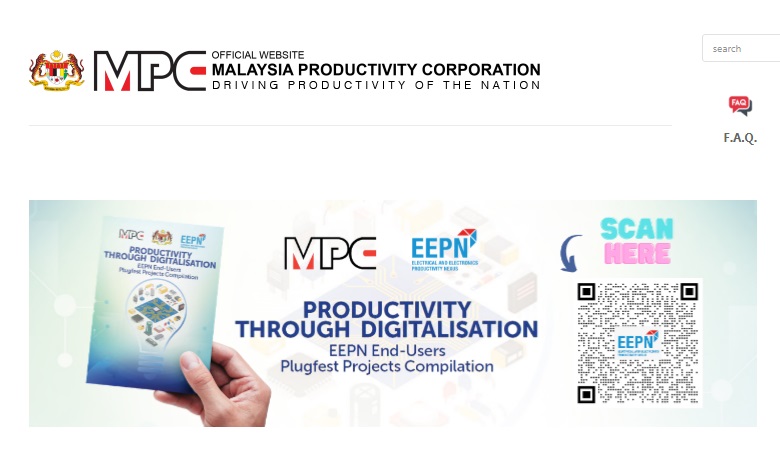As part of MyDigital blueprint, Malaysia Productivity Corp helps startups with unnecessary regulatory burdens
By Digital News Asia June 9, 2021
- Entrusted with task to identify priority regulations to review & update
- Good execution will increase market entry & transform industry structure
 In line with the mandate given to it under the Malaysia Digital Economy Blueprint (MyDigital), Thrust 2 – Boost economic competitiveness through digitalization, the Malaysia Productivity Corporation (MPC) is urging startups to voice their regulatory concerns hampering innovation in digital economy businesses at http://mymudah.mpc.gov.my/.
In line with the mandate given to it under the Malaysia Digital Economy Blueprint (MyDigital), Thrust 2 – Boost economic competitiveness through digitalization, the Malaysia Productivity Corporation (MPC) is urging startups to voice their regulatory concerns hampering innovation in digital economy businesses at http://mymudah.mpc.gov.my/.
The form is in response to the specific National Initiative assigned to MPC ie to “Adopt an agile regulatory approach to meet the needs of digital economy businesses.” There are 48 National Initiatives, which are public sector driven, with another 28 being Sectoral Initiatives, which are private sector driven.
Under Thrust 2 there are five strategies with MPC’s agile regulatory initiative falling under “Streamlining regulatory requirements to respond to digital economy and encourage innovative business models.”
MPC has been entrusted with the task to identify priority regulations to review and update them in order to enhance the business climate for digital economy businesses to prosper. Effective overall execution of the initiative is projected to contribute to the creation of at least 5,000 startups by 2025.
[Ed: Para edited for accuracy. An earlier version incorrectly had 2021 as the target for achieving 5,000 starts.]
 Abdul Latif Abu Seman (pic), MPC director general said, “Tell us your regulatory challenges in operating digital economy businesses, and our task is to facilitate management of the legislative issues for your business to grow. It is important for us to know the barriers to link you to the right party and enable effective design of interventions for business to prosper. This is the platform for digital economy business owners and employers to voice your predicaments.”
Abdul Latif Abu Seman (pic), MPC director general said, “Tell us your regulatory challenges in operating digital economy businesses, and our task is to facilitate management of the legislative issues for your business to grow. It is important for us to know the barriers to link you to the right party and enable effective design of interventions for business to prosper. This is the platform for digital economy business owners and employers to voice your predicaments.”
Latiff explains that MPC is mandated to review regulatory requirements to facilitate innovation and expand coverage to include new technology and business models. The urgency in driving productivity growth to a greater height against the impact of the pandemic is more important than ever, he stresses. “Regulations have to be supportive, not only for business revival, but equally significant towards the creation of more firms.”
He acknowledges that a more agile approach to regulation is vital to realise the full potential of new and emerging technologies within the digital economy. “Regulators need to design regulatory frameworks which facilitate technology innovation, ensure an open and non-discriminatory business environment, protect consumers and workers, and tackle the unintended consequences of disruption. Agile regulation enhances transparency, consistency, and standardisation in the regulatory process,” he said.
Companies registering their regulatory concerns are required to fill in the details of the issues faced and recommendation to address the issues. This includes their regulatory challenges in technology adoption, information on Acts or regulations which pose the challenges, the responsible governing authority or party and their specific recommendations to overcome the outdated regulations.
Successful implementation of the mandate entrusted to MPC is projected to increase market entry for new businesses and create more opportunities to transform industry structure.


